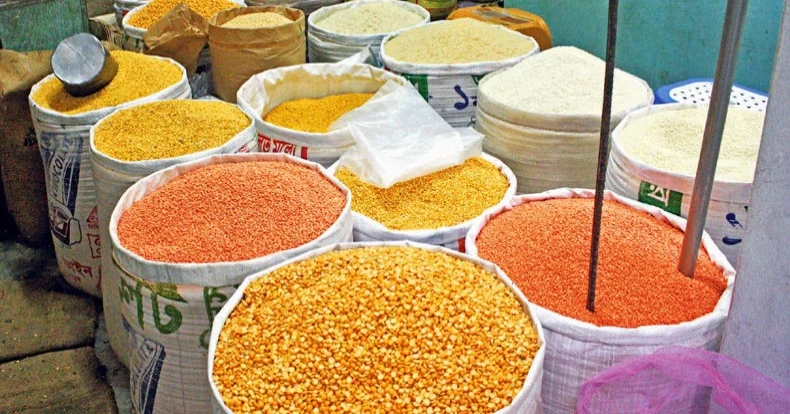The ship-breaking industry drives vital steel recycling, jobs and export earnings in Bangladesh. Yet it exposes workers and ecosystems to grave risks.
This in-depth analysis compares Bangladesh with India and Pakistan, examines economic benefits, health and environmental costs, and outlines urgent policy steps for a safer, sustainable future.
The strip of beach between Sitakunda and Mirsharai under Chattogram district in Bangladesh is where global giants go to die. Each year, scores of ocean-going vessels are run ashore and cut apart by hand and machine, a process that supplies Bangladesh with recycled steel, supports thousands of jobs, and feeds a local economy built on ship salvage.
Yet alongside the clang of cutting torches are bitter alarms: workplace fatalities, toxic pollution, and fragile coastal habitats pushed to the brink.
The ship-breaking industry in Bangladesh is therefore paradoxical, at once an economic lifeline and a social-ecological crisis that demands urgent, internationally coordinated reform.
How big is the industry and who benefits?
Bangladesh today is one of the world’s leading ship-recycling hubs. Over recent years, South Asian yards (primarily Bangladesh, India’s Alang and Pakistan’s Gadani) have processed the bulk of global end-of-life vessels. In 2024, South Asia received the lion’s share of scrapped tonnage.
The ship-breaking industry funnels valuable steel back into domestic markets, reducing Bangladesh’s reliance on virgin steel imports and supporting downstream sectors such as construction and manufacturing.
Industry observers estimate that ship recycling supplies hundreds of thousands of tonnes of reclaimed steel annually to local mills and fabricators and underpins a network of ancillary firms — transport, small-scale workshops, logistics and hatcheries of economic activity across Chattogram.
Employment is a crucial benefit. The yards directly employ thousands estimates vary but range from tens of thousands to figures over 50,000 when informal day-labour and associated trades are included. For many coastal families, ship-breaking wages are a primary income source and a route out of rural poverty.
The local fiscal contribution is real: port fees, scrap sales and exports of recovered materials generate revenue and create livelihoods around the yards.
(International Maritime Organization)
The human and environmental toll, a stark warning
But the gains are shadowed by profound social and ecological costs. The ship-breaking industry has a documented record of fatal accidents, severe injuries and chronic exposure to hazardous materials from asbestos and heavy metals to residual oil and PCBs.
In 2024, credible reports show dozens of casualties and numerous injuries across South Asian yards, with Bangladesh repeatedly featuring among the countries with the highest incident counts.
Workers often operate without adequate protective equipment, formal training, or secure contracts, and emergency response capacity is limited.
The environmental footprint is equally worrying. Beaching methods, manual cutting and inadequate containment mean contaminants enter sediments and coastal food chains. Local fisheries and mangrove patches suffer, and coastal communities report polluted water and declining fish catches after heavy scrapping periods.
(Human Rights Watch Report)
The cumulative ecological effect undermines the very livelihoods the industry is supposed to support.
Bangladesh vs India and Pakistan competition, specialization, and regulation
Comparisons are revealing. India’s Alang yard in Gujarat operates at a different scale and under evolving regulatory pressure. It has transitioned toward more controlled, mechanised recycling in parts, blending beaching with improved infrastructure and oversight.
Pakistan’s Gadani has also been a major destination historically but has fluctuated with global market cycles and regulatory constraints.
Bangladesh’s Chattogram yards excel on speed, low cost and labour availability, which keeps them competitive for shipping companies seeking low-cost recycling. Yet this cost advantage often correlates with lower compliance standards.
All three countries dominate global scrapping, but they differ in enforcement, investment in modern facilities and public scrutiny.
(Ship Recycling Transparency Initiative)
Economic value quantified real gains, fragile math
Quantifying the ship-breaking industry’s economic value is complex but essential. Recycled steel from ships reduces pressure on scrap markets and supplies raw material for local mills, where imported billet prices are volatile.
Analysts place the industry’s direct economic contribution in the hundreds of millions of dollars annually, with wider multiplier effects across transport, trade and manufacturing.
For communities adjacent to the yards, scrapping seasons are peak income months, financing schooling, housing and small businesses.
Yet these gains are fragile because they depend on fluctuating global ship decommissioning rates and on the willingness of ship-owners to accept environmental compliance costs. A single regulatory shift in flag states or major buyer markets could tilt the balance potentially sending more ships to higher-standard yards or concentrating activity in low-compliance locations.
(UNCTAD Maritime Review)
Health, safety and the law gaps that kill
Worker safety in the ship-breaking industry remains a systemic failure. Investigations and NGO reports consistently document inadequate personal protective equipment, poor emergency protocols, and the casual storage of flammable and toxic materials in cutting zones.
Legal frameworks exist Bangladesh has workplace safety laws, environmental rules and international conventions that touch on ship recycling but enforcement is uneven.
Informality compounds the problem: many labourers are daily-wage workers without formal contracts, social protection or access to compensation after accidents.
In recent years there have been upticks in inspections, seizures of unsafe vessels and some prosecutions — but these are reactive measures. What’s missing is a proactive, integrated system: rigorous pre-beaching audits, hazardous-material inventories, certified worker training, and permanent medical and emergency infrastructure at yards.
Towards greener recycling opportunities and models
There are promising models for transforming the ship-breaking industry into a greener, safer sector. Mechanised cutting platforms, enclosed dry-dock recycling and formalised hazardous-waste management can dramatically reduce emissions and worker exposure.
Certification schemes including the Hong Kong Convention for the Safe and Environmentally Sound Recycling of Ships and national licensing systems offer pathways to upgrade standards. When ship-owners pay a premium for certified recycling, yards are incentivised to invest in safe infrastructure and formalise their workforce.
(Hong Kong Convention Overview)
Community partnership is another route. Local training centres for welders, riggers and safety officers, financed through donor funds, private investment and government grants, can professionalise the workforce and provide alternative livelihoods.
Targeted fiscal incentives such as tax breaks for yards that achieve compliance milestones could accelerate conversion.
Policy blueprint: what governments and buyers must do now
Reforming the ship-breaking industry requires a multi-actor approach.
First, national regulators must enforce existing laws uniformly and streamline licensing so that compliant yards are rewarded and non-compliant ones upgraded or shut down.
Second, ship-owners and flag states must commit to pre-scrapping audits, full disclosure of hazardous inventories and contracts only with certified yards.
Third, international development agencies, insurers and bilateral partners should fund technological upgrades and worker retraining programs.
Finally, civil society and local communities need representation in decisions that affect coastal zone from environmental monitoring to compensation after accidents.
The ethical market can buyers be part of the solution?
A global ethical procurement standard could change incentives. If major buyers steel mills, construction conglomerates and governments prefer scrap sourced from certified, environmentally sound yards, ship-owners will follow the market.
Insurance companies and classification societies already influence choices. Mobilising them to require certified recycling as a condition of sale would shift the economics in favour of higher standards.
Such demand-side pressure has precedents. Conflict-free minerals, certified timber and fair-trade products all show how market rules can drive on-the-ground change. The ship-breaking industry could follow this trajectory if stakeholders coordinate across borders.
A call for balance and urgency
The ship-breaking industry sits at a crossroads. Bangladesh, with its extensive coastal capacity, skilled informal workforce and proximity to global shipping routes, has a real comparative advantage.
That advantage can become a long-term national asset only if it is coupled with investment in worker safety, pollution control and formal governance. Otherwise, the short-term gains will continue to be bought at the cost of worker lives, community health and fragile coastal ecosystems.
International actors from ship-owners and insurers to multilateral lenders and environmental NGOs must treat ship recycling not as a problem to be outsourced, but as a shared responsibility.
The choice is stark: modernise and professionalise a critical circular-economy sector, or accept recurring tragedy and environmental degradation. For Bangladesh, and for the global supply chains that depend on recycled steel, the time to act is now.








